The Last Of The Supercharged Elises
Don’t worry my fellow Americans, your supercharged Elises and Exiges are safe. In Europe, however, the introduction of the new 1.6 liter Elise means the old 1.8 supercharged cars are on their way out, victims of the new Euro 5 standard.
V6 Or Four-Cylinder?
Do you buy the base four-cylinder, or upgrade to a V6? For most car-purchasing decisions, this is an important question to think through. And usually the trade-offs are simple: you can pay more for more power and less efficiency with the V6, or save money and gas with the four-potter. And with fuel prices staying volatile, four-cylinder engines are becoming all the more popular: for example, Hyundai’s new Sonata has been engineered to be four-cylinder only. But according to Consumer Reports, the differences between the V6 and the four-cylinder option aren’t always as clear as you might expect.
The EPA's Ten Most-Efficient Vehicles Since 1984
- 2000 Honda Insight 5MT CVT (49/61/53)
- 2010 Toyota Prius (51/48/50)
- 1986 Chevrolet Sprint ER 5MT (44/53/48)
- 1990-1994 Geo Metro XFI 5MT (43/52/47)
- 1986-87 Honda Civic Coupe HF 5MT (42/51/46)
- 1994-95 Honda Civic Hatchback VX 5MT (39/50/43)
- 2006-2010 Honda Civic Hybrid CVT (40/45/42)
- 2010 Honda Insight CVT (40/43/41)
- 2001-2003 Toyota Prius CVT (42/41/40)
- 1989 Chevrolet Sprint/Suzuki Swift 5MT (38/45/41)
Keep in mind that this list [via our pals at Autosavant] is for EPA ratings, adjusted to the new post-2008 methodology (city/hwy/combined). Luckily, the EPA also accepts real-world mileage submissions from citizen-motorists to help illustrate the whole “your mileage may vary” thing. That list is after the jump.
The High Price Of High Fuel Efficiency
The National Academy of Science’s National Research Council has released a comprehensive report on fuel-saving technologies and their associated costs [full report available online here, summary in PDF format here], and it’s data-licious. Just about every currently-available (within the next five years) efficiency-improving technology was assessed, not just for efficiency gains, but for cost as well… but let’s wait on the cost part for just one moment. Above, you can see the study’s findings in regard to efficiency gain available through various near-term technologies, as applied to vehicles with 4, 6 and 8-cylinder engines. It should come as no surprise to find that conversion to Hybrids, diesels and dual-clutch or continuously-variable transmissions offer some of the greatest benefits… but what about those costs?
Volkswagen To Introduce 51.3 Mpg 7-Seater
Financial Times calls “Volkswagen a long-time skeptic about hybrid and electric cars.” As a long time observer of the Wolfsburg boys, I have to agree. Despite green initiatives for public and political consumption, their private position has been that the consumption and emissions of a hybrid could be achieved with their low displacement supercharged engines and some weight savings. Some electric initiatives notwithstanding, this position has not changed. Case in point: Their new Touran.
Toyota Loses Bid To Dismiss Hybrid Patent Lawsuit
The long-simmering dispute over hybrid technology patents between Toyota and the Florida engineering firm Paice is rolling on, as Bloomberg BusinessWeek reports that a judge from the U.S. International Trade Commission refused to dismiss the Paice suit. That suit builds on an earlier ruling requiring Toyota to pay Paice royalties on its Prius, Highlander Hybrid and RX400h sales (Toyota is challenging the amount of these royalties, ordered by a federal judge in Texas).
Quote Of The Day: Right Round Baby Right Round Edition
GM Throws Another Lambda On The Fire: Cadillac Confirms 7-Seat Crossover
EV Startup Coda Snags $58m Investment
On the strength of Coda Automotive’s plan to launch a $45,000 EV conversion of a Chinese Hafei sedan, our coverage of the EV startup (formed from the ashes of Miles Electric Vehicles) has pretty much been limited to the conclusion that it “make the Volt look good.” And as the competition has moved forward, the venture isn’t looking any better by comparison. With news that Nissan will be able to manufacture its Leaf batteries for the low, low price of under $400 per kWh ( if all goes to plan, anyway) rocking the EV community, Coda’s proposition of asking $45,000 for a 33.8 kWh lithium-ion battery with a Chinese compact sedan attached to it has not aged well (conservatively assuming the Hafei costs $15k, that still breaks out to nearly $900 per battery kWh, as crude as the comparison may be). But don’t let a little common sense worry you about Coda’s future: according to a company press release [via PRNewswire] the firm just scored a cool $58m in an oversubscribed fundraising round that leaves it with over $125 in total investments.
What's Wrong With This Picture: Analysis-Retentive Edition
About a half-hour after TTAC’s 15 Years of Compact Car Sales graph went up today, the normally enthusiast-oriented car blog Jalopnik gave the internet its own take on compact-car segment analysis with a post titled The Ford Fiesta Will Dominate The Small Car Segment. Some might question how this is supposed to jive with Jalopnik’s alleged commitment to “awesomeness,” but our concerns are far more prosaic. Examples: the absence of the Fiesta’s actual competitors like the Honda Fit, Nissan Versa and Toyota Yaris, and the absence of interior volume comparisons which would expose this “comparison” for the fraud it is. And that’s just for starters…
Ford Fiesta Earns 40/29 MPG Rating
DOE Loans In The Works For GM, Chrysler
Officials working with the Department of Energy tell the Detroit News that GM and Chrysler face no major obstacles in their quest for huge retooling loans from the DOE’s Advanced Technology Vehicle Manufacturing Loan program. GM is seeking $14.4b and Chrysler has asked for $8.55b in low-cost government loans. Says Matt Rogers, a senior adviser to the Energy Department
Project finance details need to be worked through, but those things are working out just fine as we work directly with the companies. It’s really a process of making sure that each of the projects that they have are in fact competitive.
Er, competitive compared to what?
Suzuki Announces Volt-Alike Swift Plug-In
Survey Finds 30 Percent Take Rate For US-Market Diesels
Electricity-Generating Shocks: The Key To The Electric HUMMER?
Technology Review reports on Levant Power’s “GenShock” technology, which generates electricity by converting the kinetic energy of suspension travel into electricity. And electricity generation isn’t the whole story: the entire suspension is an actively-controlled, dynamic system that improves performance as well as efficiency in a turnkey package.
Levant has developed a modified piston head that includes parts that spin as it moves through the oil, turning a small generator housed within the shock absorber. To improve vehicle handling, the power controller uses information from accelerometers and other sensors to change the resistance from the generators, which stiffens or softens the suspension. For example, if the sensors detect the car starting a turn, the power controller can increase the resistance from the shock absorbers on the outer wheels, improving cornering, says David Diamond, the vice president of business development at Levant.
Announcing The Double-Blown Hot Hatch Polo GTI You Can't Buy
The long awaited Polo GTI is not long awaited anymore. Except if you live in the U.S.A. Then you can wait until the proverbial cows come home. Or until someone at VeeDub has an epiphany and sends the thing stateside. (I still remember how long it took them to introduce the original Golf GTI to the U.S. Forever. We begged them. “There is a 55 mph speed limit,” they said. “They buy Porsches,” we said. “That’s something else,” they said. “They buy muscle cars,” we said. “Stop bugging us,” they said. And how long did it take them to decide to bring a civilian version of Polo to the U.S.? What, 35 years?)
The textbook example of engine downsizing that gets 180 hp out of its twincharged (turbo and supercharger) pintsized (1.4 liter) TSI engine, while making owners of gas stations increase their anti-depression medication with a 40 mpg US rating (estimated) is being officially launched today in Germany. In style: At the Nürburgring.
Sales Chart: Chevrolet Suburban Versus Chevrolet Tahoe 1995-2009
The Rise And Fall Of The Suburban
Considering the Suburban so essentially captures the tenuous line between myth and reality in American life, it’s a pity we don’t have 75 years of sales data to put some hard numbers behind the nameplate’s 75 years of history. Luckily, our data does go back to 1995, when America’s whirlwind romance with the SUV was just beginning to get serious. Given that, as Paul points out in today’s history, Suburbans didn’t become popular as family haulers until sometime in the early eighties, it’s safe to assume that 1996-2004 represents the absolute high-water mark for the nameplate’s volume. And ye gods has that volume dropped off ever since.
Ferrari Fights The Future
Despite breaking new ground in the field of brand leverage with its Ferrari World Abu Dhabi theme park, Ferrari does seem to have lost the plot a bit in relation to its “other” business building expensive sportscars. Ferrari’s abandonment of the manual transmission might be justified by faster lap times at Fiorano, and the lightning-fast, dual-wet-clutch transmissions that replace them certainly seem to help keep the Scuderia at the bleeding edge of technology (even if they’re designed and built by Getrag). But underlying the faster times, higher speeds and “digital supercar” honorifics from the motoring press, there’s a sense that Ferrari’s progress must accommodate an ever-more ambitious business plan as much as design the world’s most capable and emotive sportscars. And it’s starting to bear some troubling fruit.
Announcing the 10549 MPG Car
This car won’t have a problem with CAFE rules. Around the world, Shell is conducting Eco-Marathons. The mission: Who gets the farthest on just one liter of fuel. Team Polyjoule from France’s Nantes Polytech turned a quart of gas into 4,414 kilometers, reports Das Autoshaus. If I didn’t make a mistake in my calculation, that’s 10549 MPG. More or less. Staying the whole 4,414 km in the coffin-like contraption should receive an extra prize.
Toyota: $50k Hydrogen Sedan By 2015
Lithium-ion batteries aren’t the only automotive cleantech that appears to be getting cheaper. Toyota’s head of advanced autos, Yoshihiko Masuda, tells Bloomberg that the Japanese automaker has cut the cost of hydrogen fuel cell vehicles (FCVs) by 90 percent in the last five years or so. Mid-decade, Toyota’s per-car estimates for FCVs ran near a million dollars per car. With costs now closer to the $100k mark, Toyota says it plans to cut that number in half by 2015. If they can make that happen, Masuda says, a $50k hydrogen FCV will be on like Donkey Kong.
Nissan Leaf Battery Packs Break The $400/kWh Barrier
AutoblogGreen‘s Sam Abuelsamid earns a tip of the blogger’s hat today for making sense of a fascinating nugget in a Times of London piece on the Nissan Leaf. The revelation by Nissan EV honcho Andy Palmer to the British paper that Leaf battery packs cost £6,000 (about $9k) to produce could have been missed, buried as it was near the bottom of the story. Not only did Abuelsamid catch it, he calculated that the Leaf’s 24 kWh lithium-ion battery costs break down to a staggeringly cheap $375 per kWh. How cheap is that, relatively speaking? Apparently cheap enough to send Li-ion startup A123 Systems’ stock to record lows according to the WSJ [sub]. More price-comparison context and some insight into how Nissan might have beaten those costs down after the jump.
Mazda RX-8 To Be Discontinued In US Market
With the Mazda RX-8 being pulled from the European marke t for its rotary engine’s inability to pass the new Euro-5 emissions standard, we should have guessed that its days were numbered in the US market as well. Perhaps the fact that the model is one of our favorite enthusiast options available in the US made us hope against hope that it would soldier on a bit longer. No such luck. According to Motor Trend‘s “well placed source at Mazda’s North American Operations,” the RX-8 will be phased out “most likely after the 2011 model year.” And probably not just for the obvious fuel economy or capacity-utilization reasons either: RX-8 sales peaked at 23,690 units in 2004, and have been in steady decline ever since, moving only 2,217 units last year.
Lexus Lowers Sales Expectations For HS250h
Imagine you’re an automaker which enjoys an unprecedented drivetrain technology advantage over all other manufacturers. Imagine you build a brand around that drivetrain that becomes a cultural touchstone, a symbol of your firm’s technical prowess and commitment to the environment. What do you do next? The obvious answer is to build a luxury version to help make the extra profits needed to pay for the drivetrain’s development, right? Well, Toyota did just that, piggybacking the Lexus HS250h on its strong Lexus brand and Prius technology. The only problem? It’s not working.
Aptera Runs Into Handling Trouble In X-Prize Shakedown
Three-wheeled cars offer unique advantages in aerodynamic design and build costs, but they also work from a fundamental disadvantage in terms of handling. Put simply, three wheels can not possibly generate the same levels of mechanical grip as a four-wheel design. EV startup Aptera, which recently unveiled its “design intent” 2e EV, found out just how hard it can be to make a three-wheeled design operate to mainstream standards during shakedowns for the Automotive X-Prize in which it is competing.
What's Wrong With This Picture: Progress, Or Something Like It Edition
Chevy Cancels US-Market Plans For Orlando Compact MPV
Chevrolet has had a difficult time deciding if its Cruze-based MPV, known as the Orlando, is a good fit for the US-market. Initially, Chevy debuted the Orlando concept at the Paris auto show, and said it had no plans for a US-market version. Then it was approved for the US ahead of the 2009 Detroit Auto Show, and now, according to Automotive News [sub], it’s off again. The (up to) seven-passenger MPV, built on GM’s “Delta II” compact architecture will be sold in Europe, Asia, and even Canada… just not in the US. Chevy spokesfolks explain:
The best thing to do for Chevrolet is to focus on the brands we’ve already brought to market: the Traverse, Equinox, Malibu and, soon to come, the Cruze. We feel that with those vehicles, Chevrolet has plenty of options for the modern family.
Of course, Chevy sells all three of those vehicles in Canada as well… so how are these three options “plenty” for US consumers, but not for our friendly neighbors to the North?
Let There Be Light. Weight
When I was a kid copywriter on the Volkswagen account, grumpy but thorough VW engineers drummed one tenet of green into me: You don’t save gas with secret carburetors which the oil companies hide. You save by shedding weight. The less weight to push around, the less energy is needed to do the pushing. From the First Law of Thermodynamics to Einstein, all will agree. Like we agree on the need for a balanced diet. Then we go to the next Wendy’s, and order a triple Whopper. Despite the wisdom, cars tend to gain heft over the years like an erstwhile skinny Italian bella ragazza after the age of 30.
With tougher environmental regulations spreading across the globe, and CO2 mutating into a climate-ogre from something that used to provide the fizz in a soda, automakers remember the old engineering rule: Less weight, less gas, less crud.
GM Bets Nearly $900m On Next-Gen V8s, Thanks To E85 Loophole
Lotus Adds Lightness… To The Toyota Venza?
In a study for the International Council on Clean Transportation [ full study in PDF format here], Lotus Engineering sought to prove that major reductions in the mass and fuel consumption of mass-market vehicles would be possible by 2020 through the use of new materials and architectures. Starting with a Toyota Venza crossover, Lotus was able to show that a 38 percent reduction in vehicle mass (not counting the powertrain, 33 percent reduction including powertrain) will be possible with a mere three percent increase in component costs. Based on DOE estimates, that means the Venza’s efficiency could be improved by 23 percent solely through changes in materials and design, with future powertrain efficiency gains adding cumulative benefits.
GOP Reps: Did The White House Pressure State-Owned Automakers Into Accepting GHG Standards?
With Senator Chuck Grassley (R-IA) already taking the White House and Treasury to task for possibly helping GM avoid paying the “TARP Tax,” Republican representatives Darrell Issa (R-CA) and Lamar Smith (R-TX) are attacking the auto bailout from another angle, writing a letter to nine automaker CEOs requesting clarification of the negotiating process that led to recently-passed final rules on a ramp-up of greenhouse gas (GHG) emissions standards. In their press release on the issue, Issa and Smith note:
It is unclear whether the Administration used leverage created by the possibility of a taxpayer bailout of GM and Chrysler to secure their cooperation and support for new fuel economy standards. Moreover, there is reason to believe Administration officials used inappropriate tactics to ensure broad based support across the industry. Given the clear conflict-of-interest issues at play, which naturally arise when the government is in a position to pick winners and losers and impact the future viability of private entities, it was imperative that the Administration act with the utmost transparency. Instead, the White House imposed an unprecedented level of secrecy.
Are Issa and Smith on to something, or is this simply a partisan dogpile on an unpopular policy? Hey, this is politics… does it even matter?
Toyota Backs Off FT-86 Price Point, Youth Appeal Goals
Already a good year into its hype-cycle, Toyota’s much-discussed FT-86 sports coupe is apparently losing some of the focus that made it an instant (theoretical) hit with enthusiasts. According to Autocar, Toyota has given up on its price point goal of $20,000 for a base model in the Japanese market, bumping MSRP targets to $23k for a base model and $26k for loaded examples. No word on how this will affect US-market prices, which Toyota has never disclosed goals for. And if this were the only news coming out of FT-86-land, we might have ignored it altogether. Sadly though, the price shift reflects larger trends within the FT-86’s development, none of which are wildly promising from the perspective of the enthusiasts that this car was allegedly being built for.
Hyundai Soft-Pedals 2012 "Prius-Killer" Plug-In Promise
Ask the good folks from Hybridcars.com what today’s big news was, and they’d probably point to their own scoop, titled Hyundai Has Prius-Killer in the Works. It can be hard for blogs to get OEM reps on the phone, and Hyundai’s product public relations manager Miles Johnson walked an enticingly vague line:
We are studying a dedicated Prius-fighter vehicle, meaning a hybrid-specific nameplate that isn’t based off a Sonata or a Santa Fe. It’s its own thing. We’ve also been studying plug-in hybrid technology, which is a bit farther out for us, but the near-term would be a Prius-sized vehicle… You can look at the dimensions of the Blue Will concept and see it would be a similar package and size to a Prius.
With Hyundai launching its first US-market hybrid, the Sonata, later this year, this is yet another sign of the big H’s relentless momentum, right? Well, not exactly…
GM Alpha Platform: All Things To All Enthusiasts?
First developed by Holden in 2004, GM’s Zeta platform now underpins vehicles as diverse as the Statesman/Lumina/G8/Caprice sedans, and the Chevy Camaro. Originally designed for full-sized , rear-drive Australian sedans, Zeta was downsized as far as it could be for the Camaro, which reviewers largely view as overweight and rather too ungainly for true sportscar status. Accordingly, GM has been developing a new rear-drive platform known as “Alpha,” which will form the basis of GM’s performance and luxury RWD models for the considerable future. Last we heard about Alpha was last August, when Bob Lutz swore there was no development underway of the platform he compared to BMW’s 1-/3-series. According to Motor Trend, work on the Alpha platform has begun… but there are already signs of trouble.
Car Execs Predict: 41m Cars Per Year In China 2015
Whenever yours truly sings the long-term praise of the booming Chinese auto market, it elicits loud protests: “Can’t be! Bubble market! The environment! (Our gasoline.)”
The people who make and sell cars for a living have a different opinion. The AlixPartners consultancy asked 50 senior executives from both foreign and domestic players in China’s automobile industry how much they think the Chinese car market will grow between now and 2015. Guess what their answer is?
Mazda RX-8 Banned In Europe
Volt Birth Watch 185: EPA Still Not Buying 230 MPG Number
Production of Chevy Volt “integration models” began last week, as Hamtramck tools up for final production of GM’s wundercar, but GM still isn’t saying anything about the car’s two most important features: the pricetag and EPA rating. The General has hemmed and hawed on the Volt’s price over the last several years of hype, but it hasn’t ever been shy about touting an “expected” 230 MPG rating. Because apparently it’s the EPA’s job to clear up GM’s misleading marketing claims. So what is the deal with that 230 MPG number, anyway?
Ford: 4-Cylinder Explorer, V6 F-150 Launching "By The End Of The Year"
Ford’s relationship with hybrid technology has been an on-again-off-again affair, since Bill Ford first pledged to build 250k hybrids by 2010. And it’s probably a good thing the Blue Oval backed away from that promise, as the firm sold only 33,502 hybrids last year. Meanwhile, Ford still has yet to claim profitability on any of its hybrids (last disclaiming such an achievement (sort of) in 2008). Perhaps because Ford has paid dearly to tag along in the import-dominated hybrid segments, it’s getting a bit jaded about the power of high-cost, high-tech green halo cars to deliver real results. Or, perhaps Ford’s VP of powertrain engineering Barb Samardzich is simply channeling old Henry Ford, when she says:
We are focused on sustainable technology solutions that can be used not for hundreds or thousands of cars, but for millions of cars, because that’s how Ford will truly make a difference
We’ve heard this before, but today’s news puts the four-cylinder future into perfect context in just five words: Four. Cylinder. Explorer. This. Year.
Ford Foretells Fabulous Fourtune, Disses Displacement
The V6 wars may show no signs of stopping. However, Ford is quietly making contingency plans for a future conflict: The war of the four-bangers. Start hoarding your big bore brutes and head for the hills. Ford may want to take them away.
Ford will use the upcoming SAE World Congress, to be held from April 13-15 in Detroit, to showcase its engine-building prowess. Ford will demonstrate to the world’s most eminent confab of piston-heads that there is a replacement for displacement.
Ask The Best And Brightest: How Did The Pony Car Wars Become All About The V6?
Back in the muscle car heyday, enthusiasts could likely have imagined that the 2011 Mustang and Camaro would make at least 300 horsepower. They might even have imagined that the pony cars would be equipped with optional flight modes, nuclear reactors, and autopilots. What they likely never imagined is that Ford and GM would revive the time-honored tradition of pony car one-upmanship for V6 models.
Ask The Best And Brightest: Is The Renault-Nissan-Daimler Deal Smarter Than The Smart Brand?
As analyst comments on the freshly-announced Renault-Nissan-Daimler deal come in [via Automotive News [sub]], a consensus seems to be building around the notion that the tie-up offers few real advantages to the three firms outside the real of small-car development. The financial impact and opportunities for luxury-segment component sharing are constrained by the deal’s structure, meaning the stock-swap and attendant hoopla are little more than window-dressing for the real project: developing compact and subcompact cars for tomorrow’s C02 standards. As Bertel noted, rumors of a Daimler-Renault tie-up have always centered around the Smart brand, and today Daimler’s Dieter Zetsche told Automotive News [sub] that
We could not have found a feasible basis alone for the next-generation Smart family… Of course, we could do a next-generation Smart alone, but we would lose a lot of money
CAFE For Free
On April 1, new federal fuel economy CAFE standards went into effect. By 2016, new cars should get 35 mpg or thereabouts. The true number remains an exercise in abstract algebra. Says Consumer Reports: “The new standards require different fuel economy averages for each manufacturer and for each type of vehicle (such as small, midsized, and large sedans or SUVs).” There are plenty of loopholes and offsets. Extra credit for cars that take E85 Ethanol, for instance. And here is another huge loophole:
California Cool Car Rules Dropped
Remember how the California Air Resources Board was contemplating banning black cars because air conditioning uses so much C02 ( or not)? Well, the madness is over, as The Detroit News reports that California’s proposed “Cool Car” rules are dead. What killed them (besides common sense and the laws of diminishing returns)? Law enforcement, for one, which warned that
The Many Faces Of The Chevy Cruze
After several years of hype, Chevrolet is releasing images pictures of its US-market Cruze compact in advance of the New York International Auto Show. The Cruze has been on sale around the world for nearly a year now, though the US launch delay has actually been a blessing in disguise, thanks to early transmission problems and a recall for fuel supply pipes. Now that Chevy’s next small thing has had its teething pains, the Daewoo-developed compact is being shown in a dizzying array of trims and packages for the US market. Chevy hopes that the Eco trim level will bring some much-needed enviro-cred to the brand, by offering a 40 MPG (freeway) version powered by a turbocharged 1.4 liter engine. To match that long-established mileage goal, Chevy had to make a number of modifications to the Cruze, including
Damn The EPA: Mazda Makes All Cars Idle Free
By 2015, no new car made by Mazda will stand around idle. By this year, Mazda plans to install its idling stop function on all of its new automobiles, says today’s Nikkei [sub]. Some domestic and European Mazda already have this feature. In a few years, it will be universal, including North America, where current EPA regulations discourage idle stop.
BMW: One Million FWD Cars By 2015
While the autoblogosphere frets bout whether BMW drivers can tell which wheels drive their cars, the real news in the BMW-goes-FWD storyline is the impact that the sea change in brand strategy is expected to have on volume. Automotive News [sub] reports that BMW is developing a new family of modular gas and diesel engines, which are intended “primarily for BMW’s new front-wheel-drive architecture, but the powerplants also will be used in the automaker’s rear-wheel-drive cars,” according to CEO Norbert Reithofer. And the volume at which this new family of three, four and six-cylinder engines will be produced is one of the early indications of where BMW is going with its FWD expansion. Today, BMW sells just under 1.3m vehicles worldwide. That’s fewer cars than will be powered by this new family of engines alone, which Reithofer says will motivate 1.5m vehicles worldwide. Considering BMW’s goal is to sell 2m vehicles of all its brands by 2020, it’s clear that much of that growth will be made possible by new FWD-inclusive drivetrain technology.
Chrysler Cancels Hybrid Ram, Approves Fiat 500 EV For Production
In the leadup to its bailouts and bankruptcy, Chrysler seemed to have suddenly gotten religion about zero-emissions technology, parading around several ENVI electric vehicle prototypes. By the time Fiat had cleared the cobwebs from new product development in Auburn Hills, the EV vaporware had faded into nothingness. With the need to impress politicians ostensibly in Chrysler’s past, the ENVI program was rolled into Chrysler’s normal product development process, and we no longer had to choke back laughter at the idea that Chrysler would replace its unloved Sebring with the pure-electric 200C concept. Chrysler’s embarrassing Two-Mode hybrids were also hidden from view, with only a vague indication that a hybrid Ram might someday become available. When we talked to Ram CEO Fred Diaz at last November’s Five Year Plan announcement, he said that a hybrid Ram was still being considered. Now, egmcartech reports that the Ram hybrid is dead from a commercial standpoint, and that the program will turn into a plug-in hybrid test fleet for Chrysler’s best partner: The Department of Energy, which gave the form $48m to develop a fleet of 140 plug-in Rams. But don’t worry consumers, there’s an alt-energy Chrysler in your future… sort of.
Piston Slap: At Liberty To Discuss Fuel Economy?
TTAC Commentator Libertyman03 writes:
Hi, just wanted to say that this is one of my favorite posts on TTAC. I look for Piston Slaps everyday. And since I value the advice, and the comments from the others, I decided to write in with my question: I have a Jeep Liberty (hence my username), and I like it a lot. But it uses SO MUCH GAS.
I have tried changing my driving style, change the oil regularly, change air filters and what not, and still it sucks down gas. It’s an ’03 with 82,000 miles, so it still has lots of life, but I can’t help but think getting rid of it for something more fuel efficient would be a good idea.My question then; what else could I do to stretch the Jeep’s fuel mileage?
Or should I just trade the Jeep on something smaller and more fuel efficient? My parent’s are leaning toward the latter, but I like the 4WD of the Jeep (I live in Pennsylvania, and winters can be pretty bad). If I get a new car, what should I get? I want something pre-owned, preferable 4 or 5 doors, and manual. I would also like to keep it under $8000.
Supercritical Fuel Injection Development Promises More Efficient Combustion
It seems political forces are pushing us towards EVs long before EVs are ready for prime time. “California has enormous power over the future of vehicles in this country,” and California regulators want to dump carbon, Tom Baloga, of BMW of North America told a packed audience at a session on EVs at an MIT energy conference March 6th. Thus, we have the Tesla, and the Fisker Karma, and the Leaf and the Volt are due out this year, and I don’t know anyone who wants to buy one, do you?
GM Exhumes Its Hydrogen Dreams
It’s been said many a time that the problem with hydrogen as an energy storage system for cars is that it is always the future and never the present of transportation. Indeed, hydrogen has nearly fallen of the alt-fuel radar in recent years, as present-techs like hybrid and even electric drive have matured. But the dream is not dead. The great hydrogen hope now lives with General Motors, in the form of a new, lighter-weight fuel cell which GM says will be production-ready by 2015. The new cell is 225 lbs lighter and uses one-third less platinum than the systems being tested in GM’s 30-month “Project Driveway” Equinox fuel-cell vehicles (FCVs). That leaves more platinum for trimming Escalades, and has GM thinking that real-life series production of FCVs could be possible. GM’s Charles Freese tells Automotive News [sub]:
Our learning from Project Driveway has been tremendous. The 30 months we committed to the demonstration are winding down. But we will keep upgrades of these vehicles running and will continue learning from them while we focus efforts on the production-intent program for 2015. We will continue to use the Project Driveway fleet strategically to advance fuel cell technology, hydrogen infrastructure and GM’s vehicle electrification goals
The UAW: As Green As We Need To Be
The Detroit News reports that the United Auto Workers are gearing up for battle for a surprising new cause: greenhouse gas emissions standards. Alan Reuther, Legislative Director of the newly-green union, wrote congress recently to warn against a bill authored by Sen. Lisa Murkowski which would prevent the EPA from declaring C02 a danger to public health, saying:
The UAW also is deeply concerned that overturning EPA’s endangerment finding would unravel the historic agreement on one national standard for fuel economy and greenhouse gas emissions for light-duty vehicles that was negotiated by the Obama administration last year
Not, however, because of the threat of global climate change. Who needs to worry about that when you’re health care fund is tied up in two teetering nightmares that need IPO-ing quick-fast?Hyundai Turns Blue
Volkswagen’s range of BlueMotion cars are their flagship “Look at us! We’re bluegreen!” vehicles. They employ techniques like a remapped engine, longer gear ratios and better aerodynamics to wring the last bit of mpg out of an ICU. The Blue Oval of Ford has the EcoBoost systems which are engines with a turbocharger or direct injection. That’s said to give power and torque on par with larger engine sizes, resulting in better fuel consumption and lower emissions. Daimler has its Bluetec, a slightly disgusting technology that requires overpriced urea to be added to your Benz – urea, as the name indicates, originally was a by-product of urine. (Now why didn’t the hyperkilometering AutoBild think of THAT?) Anyway, Hyundai wants in on the act.
Power: What Is It Good For?
Who doesn’t like a proper wacky duel? Like the one where James May raced a Ferrari against a camel, or when the guys from TopGear did a “train vs Aston Martin” from London to Cannes?
As in the case of the proverbial hare and tortoise, when you set two unlikely opponents against each other, you get some entertaining results — and you might even prove a point. That’s what Germany’s AutoBild (print edition, March 5) tried to do when it tested the assumption that power = speed.
Peugeot Goes Dddde Extra Kilometre
The U.S. has its hypermiling. Europe has its hyperkilometreing. In a European orderly fashion, of course. Germany has its Sprit-Spar-Meisterschaft, formerly sponsored and dominated by Volkswagen, now sponsored and dominated by Toyota. France has the Peugeot Eco Cup.
This is a competition in which different Peugeot (surprise, surprise) models are driven by everyday drivers to see if they can meet or beat official fuel consumption figures. The cars were driven 1000km on French and Swiss roads in wintery conditions (that must have been a picturesque drive). The results of the 2010 Peugeot Eco Cup are in (via The Auto Channel).
Volkswagen's Elektroshock
Financial Times calls “Volkswagen a long-time sceptic about hybrid and electric cars.” However, the pink sheet announces that Wolfsburg “has officially shifted gears.” That VW had been a sceptic is an understatement. Despite green initiatives for public and political consumption, internally, they laughed about hybrids and electrics. Their private position was that the consumption and emissions of a hybrid could be achieved with their low displacement supercharged engines and some weight savings. Pure plugins? Ach du mein Lieber. People have their next vacation in mind when they buy a car, and last VW looked, there were no charging stations on the Brenner Pass to Italy.
The official gear shifting occurred at last week’s Geneva motor show, where Volkswagen announced an “unprecedented” drive into electric vehicles.
Honda Engineers And US Execs Agreed: The CR-Z Shouldn't Have Been Built
When the production version of the Honda CR-Z debuted at the Detroit Auto Show, TTAC’s judgment was swift and harsh. Paul Niedermeyer’s piece “Why The Honda CR-Z Is So Ugly And Should Never Have Been Built” met with more agreement than dissent, and with good reason. Even though the hybrid coupe is still months away from going on sale, Honda engineers and dealers are already talking about their misgivings about the project, belying the project’s lack of originality and its poor chances for commercial success. CR-Z Chief Engineer Norio Tomobe describes his struggle to initiate the project to Automotive News [sub].
We had serious doubts about whether this would bring new value. I really struggled for a new idea, and we decided to start over from scratch. The hybrid finally gave us the wow factor.
This also marked the point where Honda’s US bosses started to lose interest in the project.
What's Wrong With This Picture: The Porsche CAFE Edition
Jaguar Land Rover Snags $458m EIB Loan
Oregon Senate Passes Transportation GHG Bill
Oregonians hold onto your Astons! Your state senate has passed a bill, SB 1059, that seeks to reduce ground transportation-related GHG emissions 75% relative to 1990, by 2050, in the state’s six major (by Oregon standards) metro areas.
Porsche CEO: "What's Happening Here Borders On A Trade War"
In its fight against American CAFE rules, Porsche is ratcheting up the decibels. For background on Porsche’s beef, see here, and here. For a possible way out, see here.
Unconvinced by electrification plans, Porsche’s new boss Michael Macht publicly joined the fray. He doesn’t mince words. “What’s happening here borders on a trade war,” said Macht yesterday evening, while Das Autohaus took notes. “We’ll keep at it. The German auto industry will not give up territory over there unnecessarily.” Financial Times cited Macht as saying that “the Americans are spoiling for a fight.”

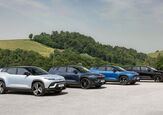
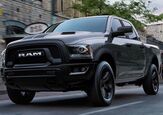
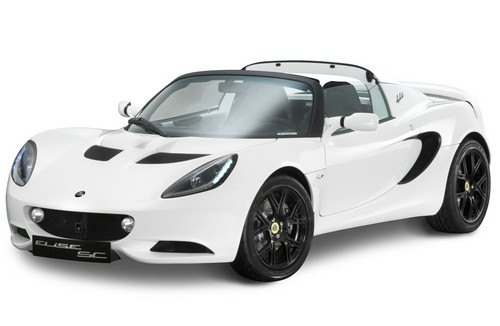
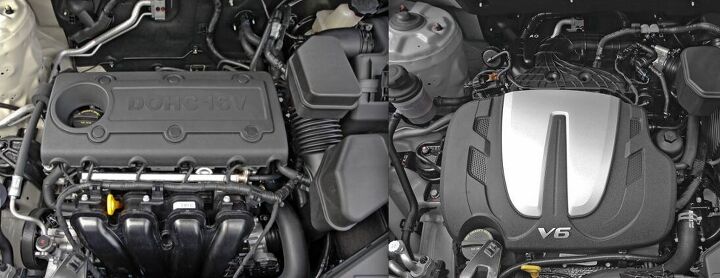

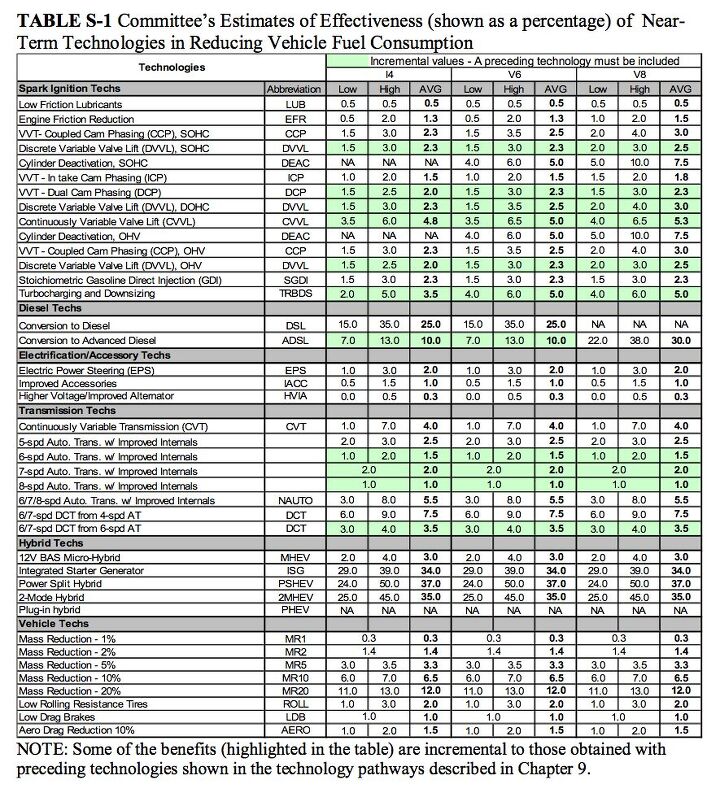

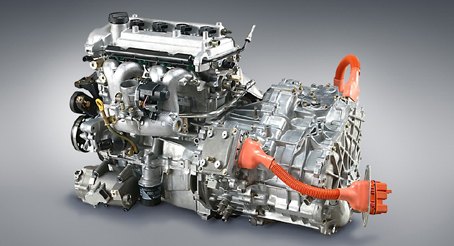
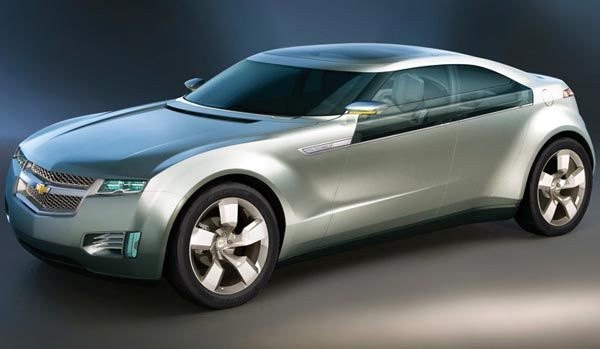
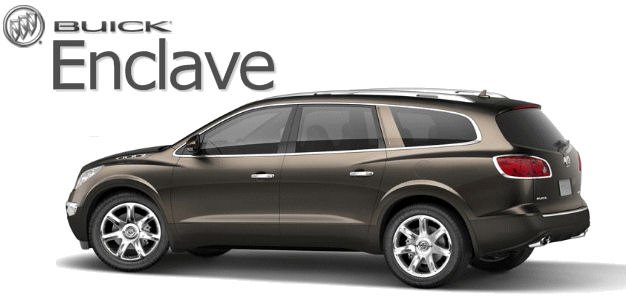


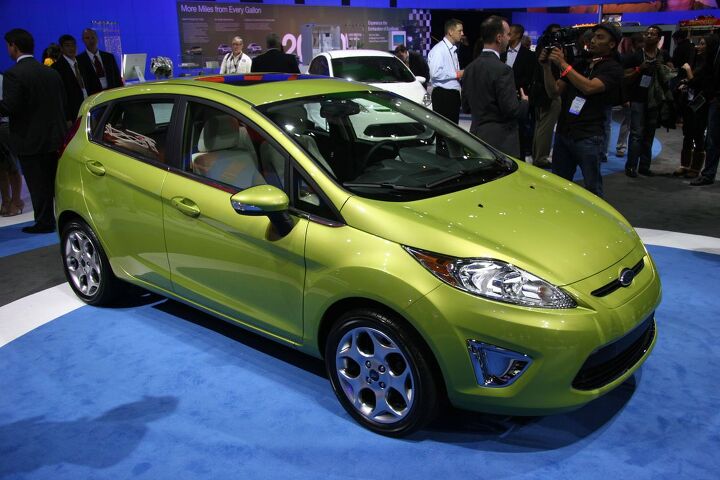

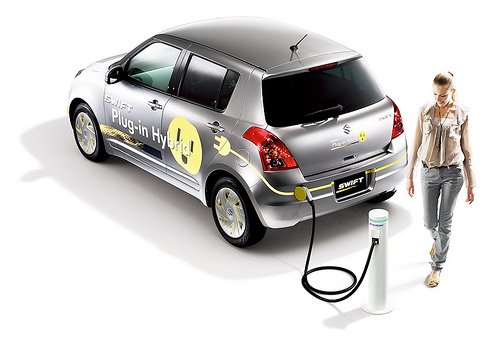
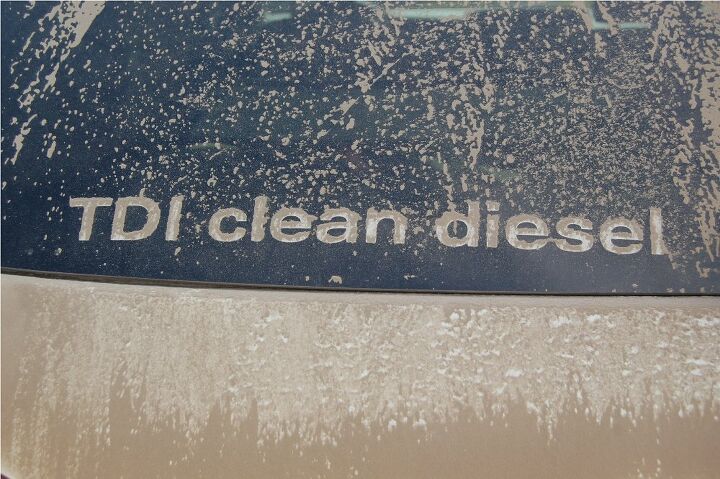

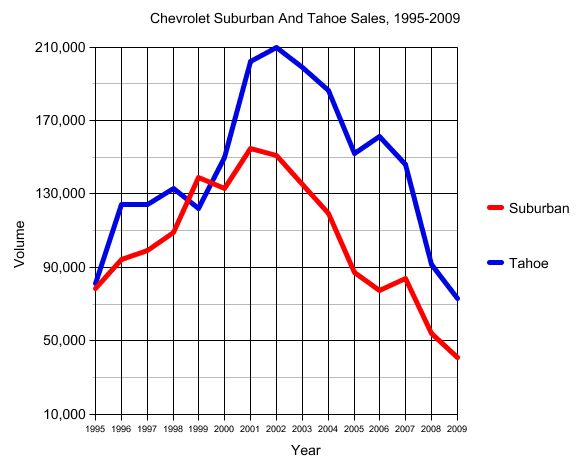
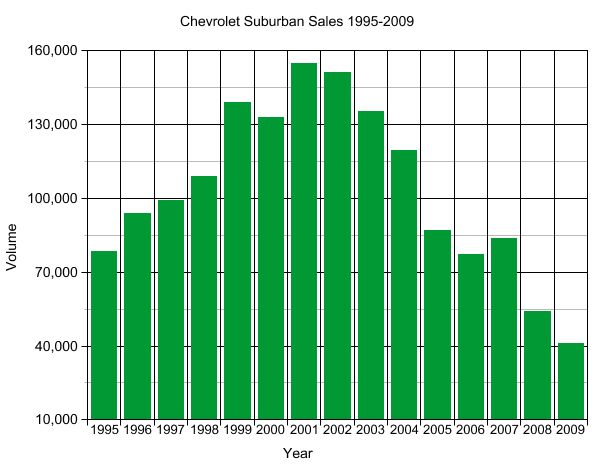

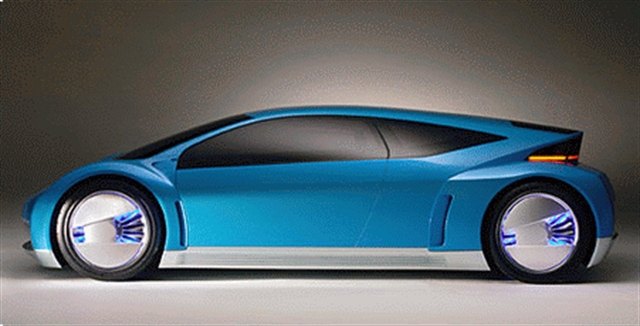
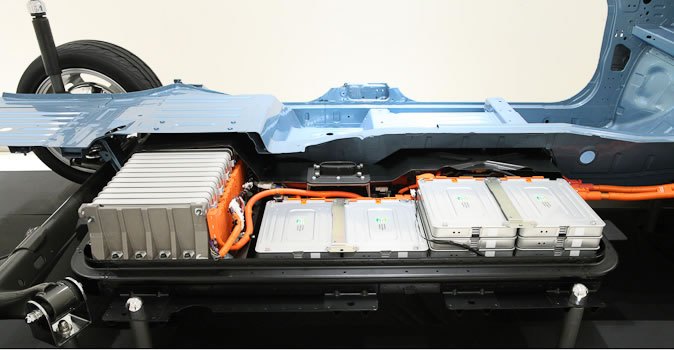

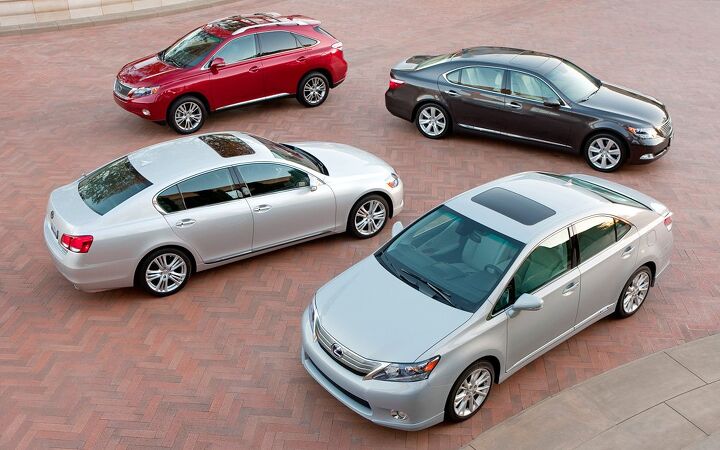
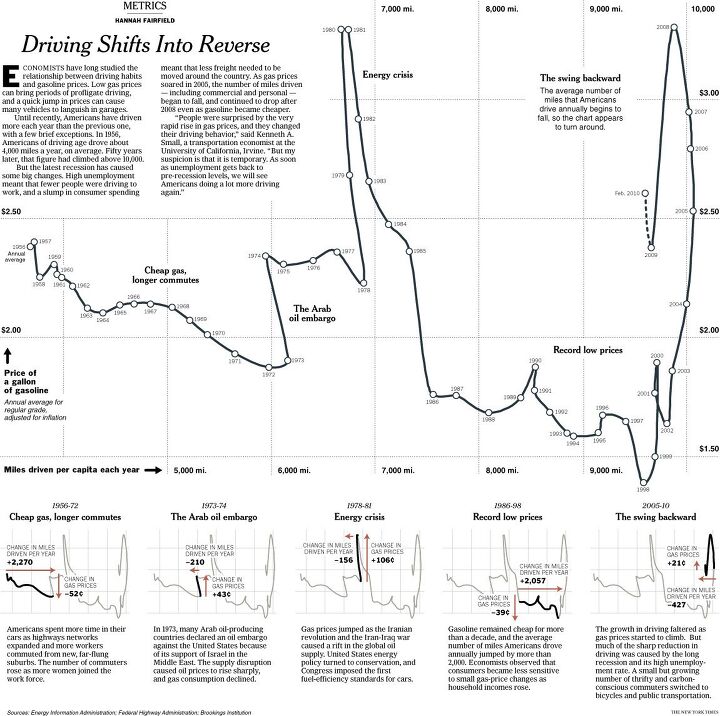

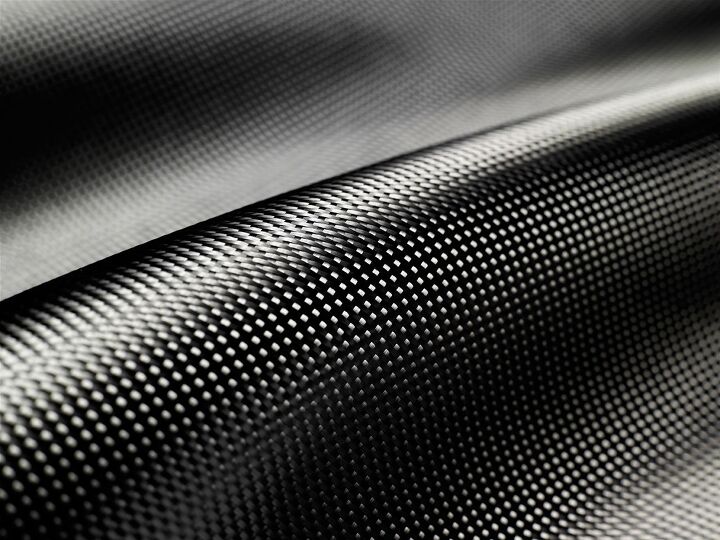

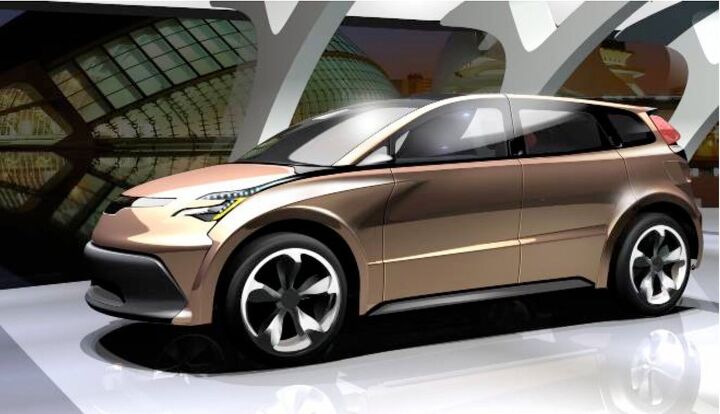

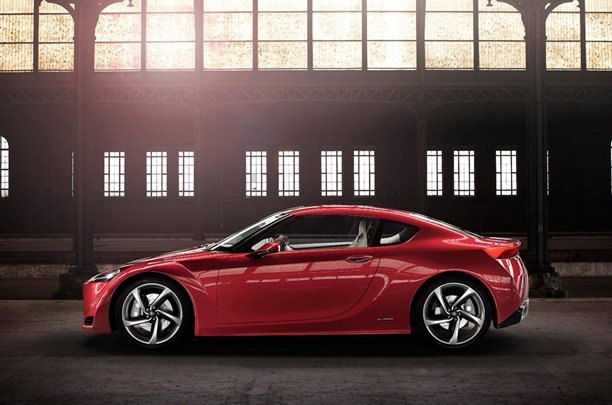




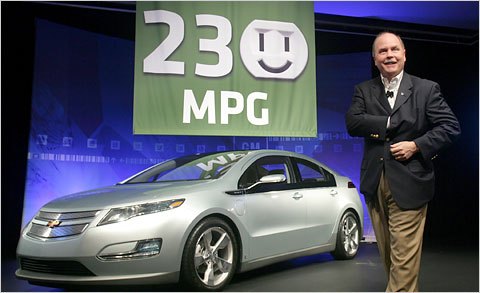



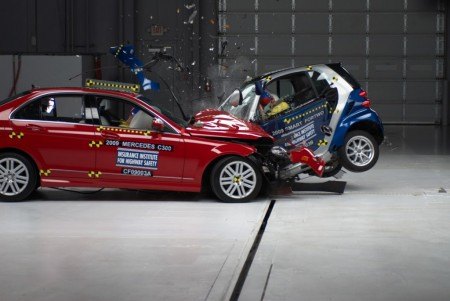

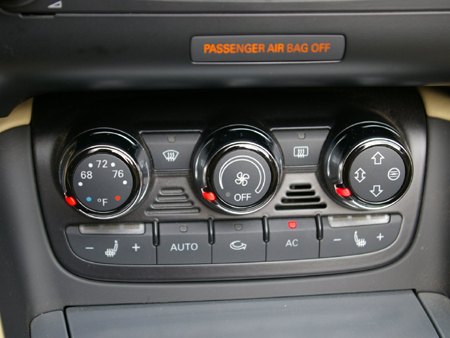

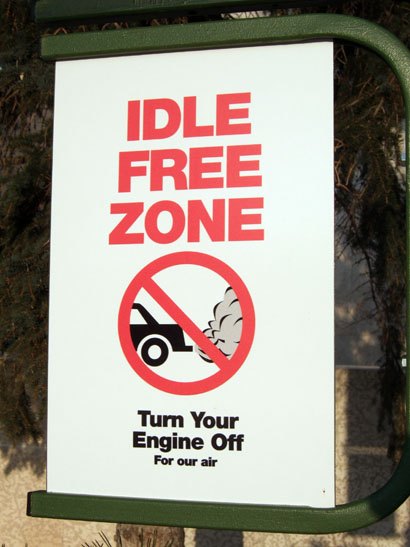

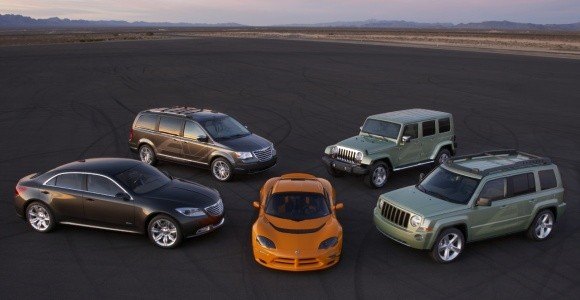

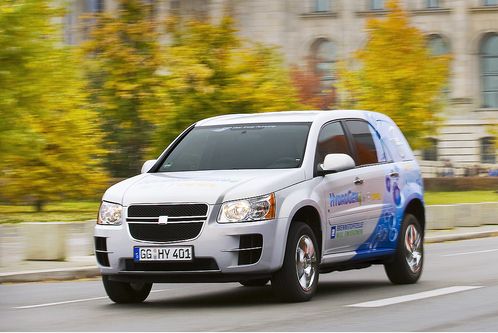






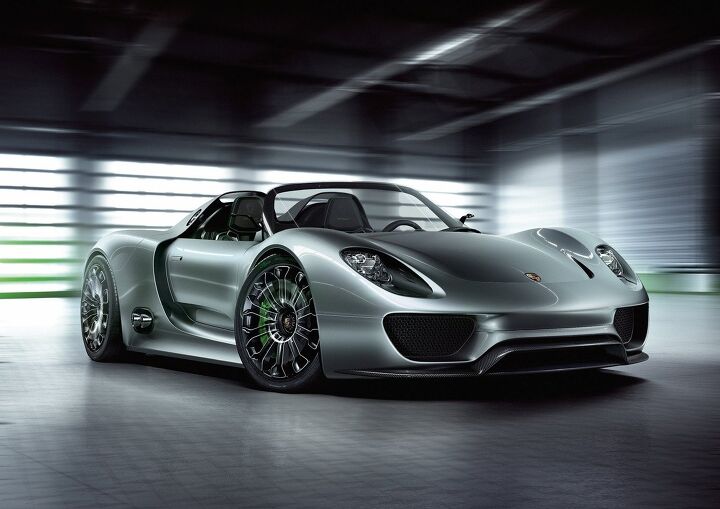
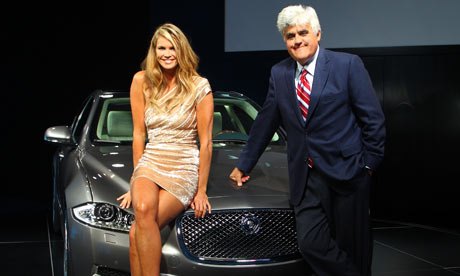
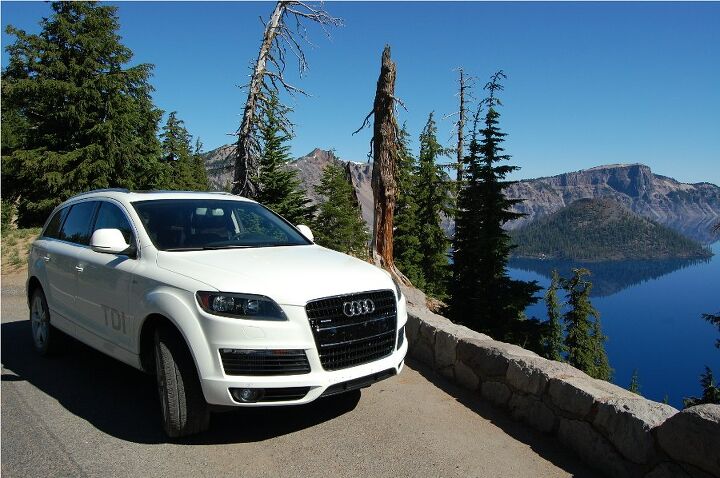













Recent Comments